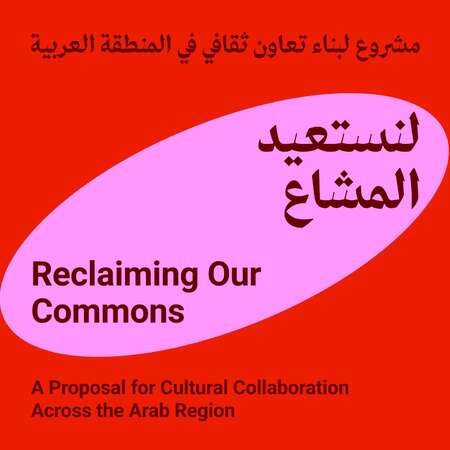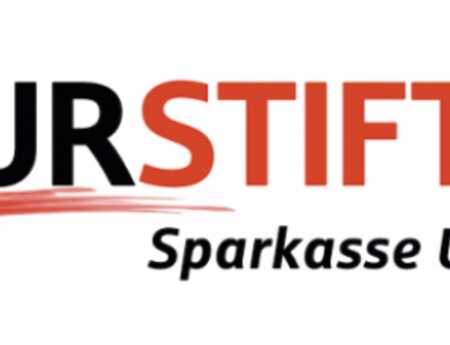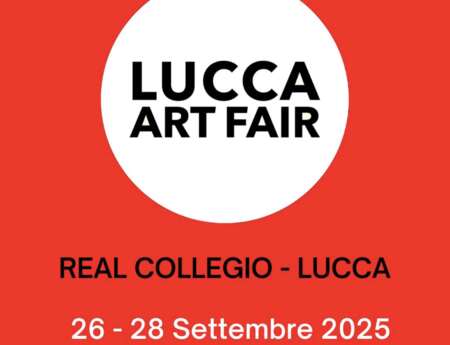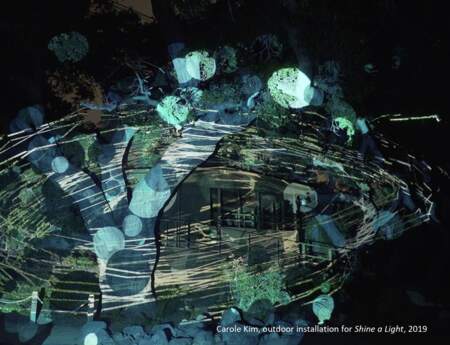
Deadline
Ghazzawi building
Bliss street
Hamra Beirut
Libanon
Reclaiming Our Commons: A Proposal for Cultural Collaboration Across the Arab Region
Culture Resource is launching the open call “Reclaiming Our Commons: A Proposal for Cultural Collaboration Across the Arab Region,” which was formulated in partnership with A.M Qattan Foundation and has been developed by a number of fellow and partner organizations, including Ettijahat – Independent Culture, Aflamuna, and L’art Rue, which constitute a nucleus contributing to project funding and programming.
“Reclaiming Our Commons” is a call to contribute to building a participatory creative process addressed to initiatives, cooperatives, independent cultural and artistic organizations, as well as artists and cultural actors. It seeks to support artistic and cultural projects across diverse artistic and interdisciplinary domains, provided they adopt cooperative, participatory, and/or commons-based approaches, whether at the project development level, project ownership, project interpretations and outputs, or project revenues.
Culture Resource and the project partners will provide grants ranging from €8,000 to €30,000 to fund approximately 12 projects (the funding will be determined based on each project’s needs). The projects will be implemented and showcased in various cities across the Arab region in 2024 and 2025. Subsequently, specific projects will be selected to participate in central events in Beirut and Ramallah, the details of which will be determined later.
The project encourages the use of documentation as a main practice throughout the implementation of the projects. This is to ensure engagement with a broader audience and contribution to collective learning by adopting various mediums such as texts, videos, podcasts, radio, comics, or any other mediums. The project also necessitates adherence to cultural and artistic work ethics and the adoption of a fair economic model that ensures the rights of authors and workers.
Why Reclaim Our Commons?
The project suggests the commons/publicness as a concept, approach, practice, and value that does not necessarily provide immediate solutions. Instead, it establishes creative pathways for inclusive cultural work and collective social change. Through its participatory process, the project aims to generate new approaches that inspire individuals and organizations within the cultural sector to explore sustainable ways forward. It also seeks to contribute to producing a discourse and/or practices that advocate for reclaiming communal space, memory, and imagination by transforming the private or official into participatory, collective, and public.
The project is built upon the premise that non-consumerist cultural production has succeeded in critiquing consumerism and mainstream culture. However, it failed to achieve sustainability. Despite several organizations in the sector ensuring institutional independence from donors, non-consumerist cultural production still operates within marginal economies, rendering it unviable, with infrastructure that is either limited or fragile. Additionally, it clashes with several intellectual currents that oppose pluralism, and functions within an extremely violent colonial reality. Therefore, the project suggests exploring communal cultural practices as a potential avenue for addressing these challenges.
About Commons/Publicness
We present here a broad outline of the concept of commons and its approaches while offering the project itself and the projects falling under it an opportunity to interpret it and approach it as ideas and practices that vary across cultures and geographies. We acknowledge the fact that those who determine the meaning of commons are the actors and the people who produce and work within it. The concept of commons is often associated with “democratization” or defined as natural resources or neutral properties and spaces organized and codified by society.
Some regard the concept of commons as a shared human right to both tangible and intangible assets or as the availability of knowledge that was once restricted or limited. However, the concept of commons is not linked solely to these interpretations. Instead, it is an integral part of a broader vision that reconsiders existing societal norms and practices.
Moreover, our political and economic systems have created social and geopolitical challenges leading to the commodification of arts and the erosion of the rights to commons and publicness. In the Arab context, in particular, the commons are receding either because of their privatization or the loss of traditional practices that once safeguarded the right to use them. This right, in many cases, was tied to a collective within a community in a voluntary and participatory way. It was also governed by a set of laws, customs, and agreements that fulfilled the needs of all individuals.
These challenges are associated with the commons as shared communal spaces. Therefore, the attempt to reclaim the rights to these spaces and material and non-material resources requires the development of broad and collective solutions that do not erase individuals but rather encourage increased collaboration among them. Achieving this calls for an innovative reclamation of the commons in both theory and practice.
Numerous studies in our region are attempting to dismantle the top-down approach to management that replaced the traditional collective systems and led to their destruction. An example of that is the concept of “Jma’a” or group in rural Morocco as a “pre-modern” democratic structure. Anthropologists have worked to observe the characteristics of collective management within these communities, particularly concerning water, land, and other shared resources. The most prominent example today is of Palestinians in Gaza and the outstanding forms of communal practices that persist under siege, carnage, and starvation.
The concept of the commons also addresses the dialectic of the Universal and the Local. It imperatively leads us to local contexts and raises new questions about the relation of humans to life and the living, outside the prevailing capitalist and colonial contexts. Regarding culture from this perspective obliges us to shed light on regional and international conflicts, such as those related to the Palestinian cause, where settler colonialism and apartheid are attempting to limit the significance of cultural work and knowledge in Palestine or what revolves around it abroad.
It is imperative to acknowledge that adopting a commons-based approach in the cultural field reinstates the link between the political economy and the creative sector by reshaping the dynamics of initiatives, funding, and production. It places creatives at the core of the cultural practice and transforms it into more than mere entertainment and consumption; thus it becomes a means to reclaim public space and fosters the production of alternative creative and critical discourses that challenge prevailing norms.
Eligibility Criteria
- Individuals:
Artists from diverse artistic disciplines and independent cultural actors, provided they are from the Arab region (regardless of ethnicity and citizenship status), whether they are living inside or outside the Arab region.
- Groups:
Independent non-governmental initiatives, cooperatives, and artistic and cultural organizations in the Arab region or abroad, whose work serves artistic and cultural production in Arabic.
Recipients of any other grant from Culture Resource’s programs may still apply to this project.
Application Guidelines
Applicants should fill out this form, which includes the following:
- Project idea;
- Linking the project to the broader context of its community;
- Explaining how the project approaches the concept of commons;
- Defining the project’s objective;
- Specifying the group/s that the project targets;
- Outlining the proposed activities;
- Defining the project’s outputs;
- Identifying the resources you propose sharing;
- Describing how the project’s outputs will be documented.
In addition to including the following:
- Detailed project budget, including the cost of production, presentation, and documentation;
- Timeline, detailing the process of project implementation, presentation, and documentation.
The deadline for applications is 12 April 2024 at 16:00 Beirut time.
To facilitate the process of project formulation and application, a series of meetings will be organized in March, including an in-person meeting in Ramallah and three online meetings with potential applicants. The objective is to present the concept of cultural commons and examples of it, discuss the proposed projects and their approach to commons, and connect them within the context of the project of building cultural collaboration across the Arab region. Details of the meetings will be announced later.
Selection Process
A jury composed of independent experts in the field of arts and culture will evaluate the applications and select the projects based on the following set of eligibility criteria:
- The project’s quality and the innovation of its concept;
- The way the project approaches the concept of commons and its relevance to the call’s objective;
- The project’s relevance to the general social and political context;
- The feasibility of the project’s implementation and the adequacy of the proposed budget.
The selection takes into consideration the possibility of connecting the projects within the context of building cultural collaboration in the Arab region, while taking into account geographical and gender diversity.
Timeline
- Open call: 6 March, 2024
- Online sessions to introduce the concept of the Commons and its application within the context of the open call:
First Session: Tuesday, 19 March 2024, 15:00 – 17:00 Beirut time
Second Session: Wednesday, 27 March 2024, 15:00 – 17:00 Beirut time
Please register here.
Third Session: Thursday, 28 March 2024, 15:00 – 17:00 Beirut time
Please register here. - In-person meeting with potential applicants in Ramallah, Palestine: 23 March, 2024
- Deadline for applications: 12 April, 2024 at 16:00 Beirut time
- Results announcement: Mid-June, 2024
- Projects implementation: From July 2024 to July 2025
Project’s Advisory Committee
Culture Resource has invited five artists, curators, and cultural researchers and actors to form the project’s advisory committee in charge of artistically conceptualizing the project and employing the concept of cultural commons as a methodology. The committee will also present and discuss this concept with the applicants through online meetings and/or in-person meetings to be held in several cities across the Arab region. The committee also sets a process and criteria for selecting the projects and contributes to curating the central events that will take place in Beirut and Ramallah.
Committee members:
Driss Ksikes / Morocco, writer, playwright, and researcher;
Hadia Gana / Libya, visual artist and academic;
Kinan Azmeh / Syria, clarinet player and composer of contemporary music;
Maha Maamoun / Egypt, visual artist and curator;
Yazid Anani / Palestine, academic, researcher and curator.


